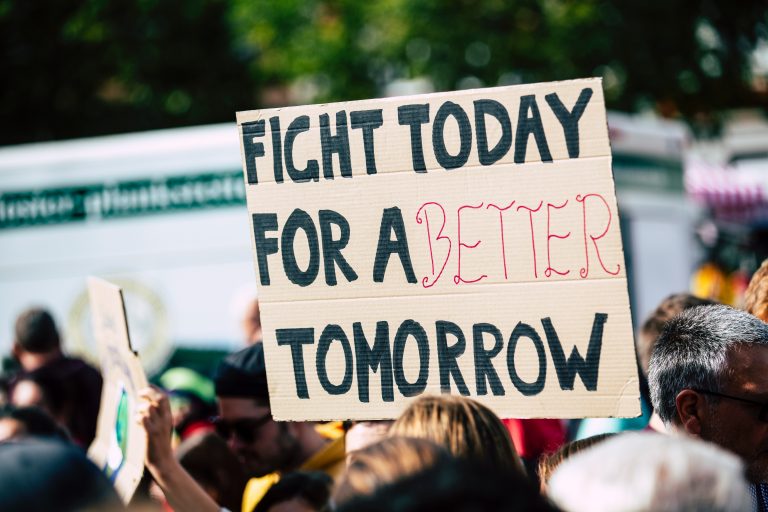
By SWNS Staff
NEWS COPY W/ VIDEO & INFOGRAPHIC
Over half of American parents believe schools should give students a day off for civic activity like attending a political rally or protesting for a cause, according to new research.
The study asked 2,000 parents of high school aged children and their children about how they think schools will change in the future due to COVID-19 and the burgeoning social justice issues.
Nearly seven in 10 high school students surveyed believe history textbooks should be revised due to the recent social and racial issues facing the nation.
Black Lives Matter and other social justice campaigns in the U.S. have also influenced what high school students would like to do in the future, with 29% citing they’re reconsidering what they want to study in college.
Conducted by OnePoll on behalf of Connections Academy and Pearson, the survey found that three in 10 high school students polled want to be more involved in politics.
The survey also asked students what social issues are most important to them and found racism, education and climate change topped the list.
A quarter of students polled also shared gun control is another important issue they follow as well as the economy.
[youtube https://www.youtube.com/watch?v=y3Hn7jSld-o?enablejsapi=1&autoplay=0&cc_load_policy=0&iv_load_policy=1&loop=0&modestbranding=0&rel=1&showinfo=1&theme=dark&color=red&autohide=2&controls=2&playsinline=0&&w=640&h=360]
Taking all of these experiences into consideration, 75% of high schoolers shared civics classes that highlight social and political issues should become part of the high school norm moving forward.
When looking to the future and how it pertains to the pandemic, 56% of high schoolers polled see the future of high school becoming a mix of online and in-person learning.
And from a parenting perspective, 74% of parents polled also believe online learning will become a regular part of high schools in the future, even after the pandemic.
Forty-five percent of parents polled said they prefer an online-only approach for now until there is a vaccine for the novel coronavirus.
Over half of parents surveyed even said they plan to keep their children in an online learning program after the pandemic is completely resolved.
This could be connected to their child’s performance during this turbulent time, as 81% of parents surveyed said their child has been self-sufficient and successful while online learning.
Thirty-eight percent of high schoolers polled said they performed better in an online learning environment compared to 16% who shared they struggled to perform as well as they did when attending school in-person.
“We’ve been delivering the Connections Academy online school program for nearly 20 years and we advise any family interested in full-time online school to do their homework to see if a fully online program is a good fit. Explore the school’s website, attend information sessions and talk to other parents or teachers,” says Mickey Revenaugh, co-founder of Connections Academy and Pearson’s director of new school models.
Half of high schoolers surveyed said the top perks of online learning were being able to work wherever they wanted and being able to work at their own pace.
Four in 10 of students polled also said another perk of remote learning was being able to work during non-traditional school hours.
“Reasons for attending online school vary, but many students are attracted to the flexibility of anytime, anywhere education and the personalized learning online school can offer. Is a fully online program for every student? No, but for many it’s the perfect school choice,” said Revenaugh.
Four in 10 students surveyed did share, however, that they were disappointed they had to miss out on milestones like prom and major sporting events due to the COVID-19 pandemic.
A quarter of students polled were even bummed that they missed out on taking their SAT or ACT exams.
TOP THINGS HIGH SCHOOLERS ENJOY ABOUT REMOTE LEARNING
- Being able to work wherever I want (flexibility of learning location) – 53%
- Being able to work at my own pace (faster / slower than the rest of the class) – 50%
- Being able to work at non-traditional school times (flexibility of learning schedule) – 41%
- Using technology tools – 35%
- Safety of learning at home – 34%
- More focus, fewer distractions – 25%
- Feel more in charge of my education – 24%
- Collaborating online with classmates – 22%
- More one-on-one time with classmates and teachers – 18%
- No bullying – 18%
MOST IMPORTANT SOCIAL ISSUES FOR HIGH SCHOOLERS
- Racism – 43%
- Education – 30%
- Climate change – 29%
- Gun control – 23%
- Jobs and the economy – 22%
- Voting rights – 19%
- Healthcare – 18%
- Gender equality – 18%
- LGBTQIA equality – 11%
- Immigration – 14%
- Social inequality / poverty – 14%



















